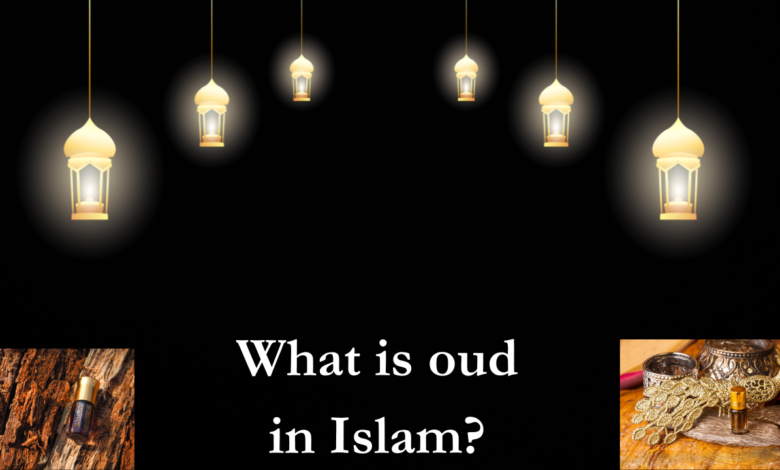What is oud in Islam?

Introduction
Islam, one of the world’s major religions, encompasses a rich tapestry of beliefs, rituals, and traditions that form the foundation of the lives of its followers. Among the various elements that contribute to the sensory experience of Islamic practices, the use of fragrance holds a special place. One such fragrance that has gained prominence within Islamic traditions is Oud.
Understanding Oud:
Oud, also known as agarwood or aloeswood, is a resinous substance derived from the heartwood of certain Aquilaria trees. These trees produce Oud as a response to fungal or bacterial infections, resulting in a rich, aromatic resin that holds a deep and complex fragrance. This unique and captivating scent has been valued for centuries across various cultures and regions, including the Middle East, Southeast Asia, and parts of Africa.
Historical and Cultural Significance:
Oud holds a long history of cultural and spiritual significance, particularly within the Islamic world. Its fragrance has been mentioned in various Islamic texts and poetry, where it is often associated with qualities such as purity, luxury, and spiritual elevation. In Islamic history, Oud has been utilized in various ways:
Prayer and Worship: The use of Oud during prayers and worship rituals is believed to create an atmosphere of tranquility and devotion. Many Muslims choose to apply Oud or other fragrances before performing daily prayers (Salah) as a means to enhance their connection with the divine.
Personal Fragrance: The Prophet Muhammad (peace be upon him) is reported to have enjoyed pleasant fragrances and encouraged Muslims to groom themselves and wear fragrances, including Oud, when attending congregational prayers or social gatherings.
Healing and Well-being: Oud has been used for its potential therapeutic properties in traditional Islamic medicine. Its aroma is believed to have calming effects on the mind and body, aiding in relaxation and reducing stress.
Celebrations and Special Occasions: Oud is often associated with celebrations, weddings, and other special occasions in Islamic cultures. Its opulent aroma adds a sense of festivity and joy to such events.
Symbolism and Spirituality:
Beyond its aromatic qualities, Oud holds symbolism in Islamic spirituality. Its journey from a simple tree to a precious and fragrant resin resonates with the spiritual transformation that individuals undergo on their path of devotion. Just as the Oud wood undergoes a transformative process to produce its exquisite scent, believers strive for personal growth and purification to attain spiritual elevation.
Furthermore, Oud’s rarity and value reflect the idea of valuing the intangible, inner qualities over material wealth. This sentiment aligns with Islamic teachings that emphasize the importance of cultivating a rich internal spiritual life over the pursuit of fleeting worldly possessions.
Modern Usage:
In modern times, Oud continues to hold a special place in the hearts of Muslims. It is often used in the creation of luxury perfumes, incense, and scented oils that are appreciated not only for their fragrance but also for the sense of tradition and connection they evoke. Many Muslim-owned perfume houses have emerged, dedicated to crafting high-quality Oud-based fragrances that honor both Islamic heritage and contemporary sensibilities.
In Conclusion:
Oud, with its deep-rooted history and profound symbolism, remains a bridge between the material and the spiritual in the Islamic world. Its fragrance serves as a reminder of the beauty and depth of Islamic traditions, while also encouraging believers to seek a higher connection with the divine and their inner selves. In a world often dominated by visual and auditory stimuli, the olfactory experience of Oud offers Muslims a unique opportunity to engage with their faith on a sensory and spiritual level, enriching their journey of worship and self-discovery.
Frequently Asked Questions (FAQs) about Oud in Islam
What is oud in Islam?
Oud, also known as agarwood, is a fragrant resinous wood that holds cultural and religious significance in Islam. It is valued for its distinctive and captivating aroma, and it has been used in various religious practices and traditions.
Why is oud important in Islamic culture?
ud holds a special place in Islamic culture due to its association with spirituality, healing, and perfumery. It has been historically used in rituals, gatherings, and personal grooming as a way to connect with a higher spiritual state and enhance the overall experience.
How is oud used in Islamic rituals?
Oud is often used during Islamic rituals, such as prayers, meditation, and supplication. Burning oud chips or incense is believed to create a serene and sacred atmosphere, helping individuals to focus their minds and hearts on worship and reflection.
Is the use of oud mentioned in Islamic scriptures?
While the specific use of oud is not explicitly mentioned in the Quran or Hadith (sayings of Prophet Muhammad), the general concept of using pleasant scents and perfumes is encouraged. The Prophet Muhammad is reported to have used perfumes and encouraged personal hygiene.
Can oud be used as a form of charity or gift in Islam?
Yes, giving oud as a gift or using it to create a pleasant environment is considered a good deed in Islam. Acts of kindness and sharing pleasant fragrances are seen as ways to spread joy and positivity among people, aligning with Islamic values.
Is oud used for medicinal purposes in Islamic traditions?
Yes, oud has been historically used for its potential therapeutic properties in Islamic traditions. It is believed to have calming effects on the mind and body, and its aroma is sometimes used in aromatherapy to alleviate stress and anxiety.






